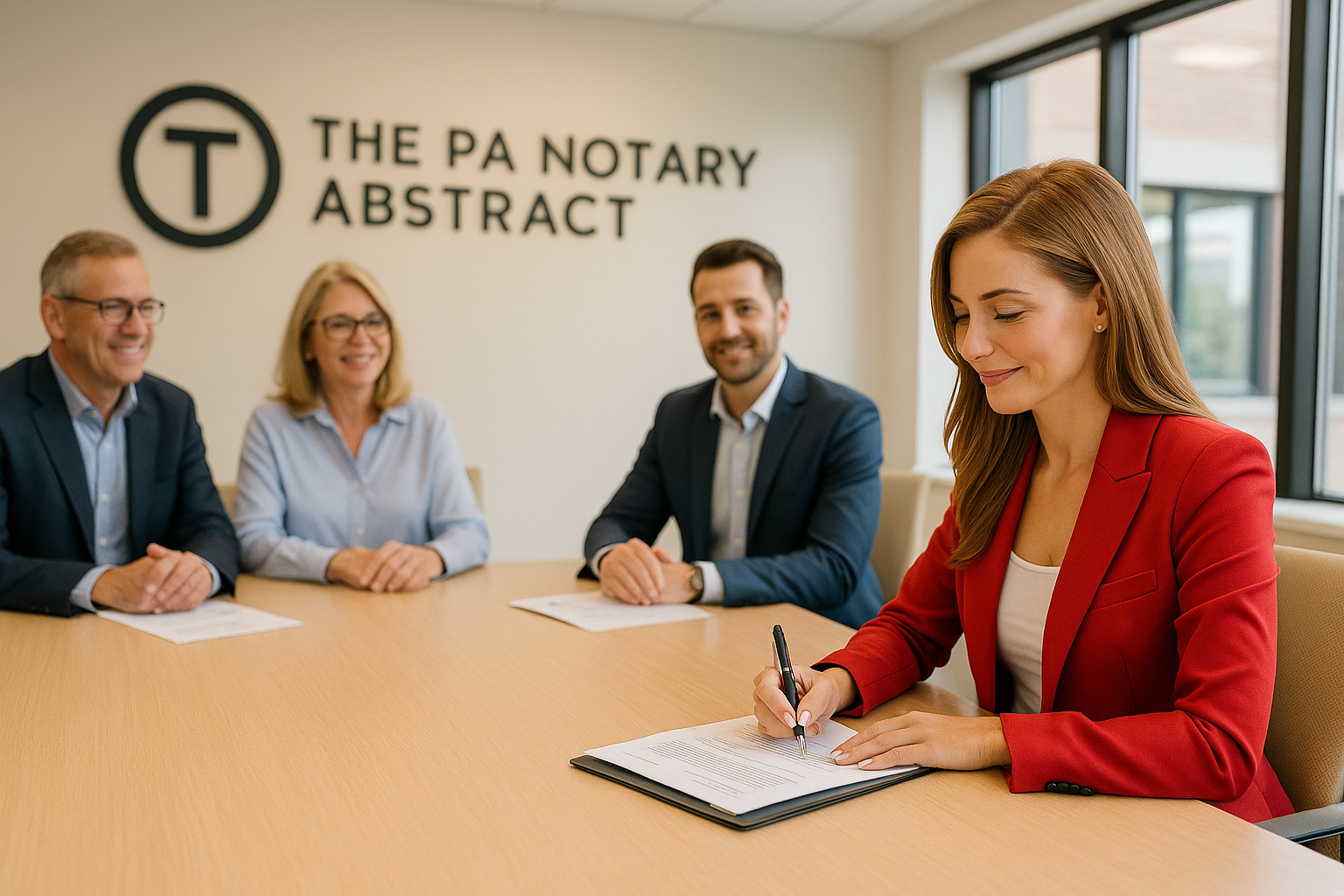As a Pennsylvania notary, your potential stretches far beyond basic acknowledgments and affidavits. By offering specialty notarizations, you open the door to premium services, consistent referrals, and a strong professional reputation.
These are the high-value transactions that legal offices, estate planners, real estate professionals, and international clients rely on—notaries who know their stuff. Let’s break down which services are most in demand, how to provide them legally, and how to turn them into serious revenue.
Why Specialty Notarizations Matter
- Higher Fees: These services often command premium rates because of their complexity and urgency.
- More Demand: Industries like legal, real estate, and finance require them constantly.
- Stronger Referrals: Clients remember the notary who made their difficult process easy.
Real Example: Priya, a notary in Philadelphia, helped a family notarize a set of estate planning documents. She handled everything professionally, kept them calm, and ensured every signature was correctly executed. That single appointment turned into five referrals within a week.
Top Specialty Notarizations to Offer
Apostille Services
What It Is: Certifies a notarized document for international use under the Hague Convention.
Common Uses: Birth certificates, diplomas, legal contracts, marriage licenses.
Pro Tip: Educate clients about the forms, fees, and turnaround times. Offer full concierge service and build relationships with immigration attorneys.
Estate Planning Documents
What It Is: Includes notarizations for wills, trusts, healthcare directives, and POAs.
Best Practices: Confirm signer identity, mental soundness, willingness, and legal age. Ask clear, calm questions to ensure understanding—and never offer legal advice.
Loan Signings
What It Is: Mortgage closings, refinances, HELOCs, and real estate transactions.
Get Started: Complete a certified loan signing course and register with title companies.
Immigration Documents
What It Is: Notarizations for affidavits, declarations, and identity confirmations.
Important: Never complete immigration forms unless you’re an authorized preparer. Stick to notarization and always comply with UPL laws.
Business and Commercial Signings
What It Is: Contracts, articles of incorporation, partnership agreements, and more.
Insider Tip: Partner with local law firms, accountants, and chambers of commerce. These clients need reliable notaries on-call.
How to Market Your Specialty Services
- Add it to your site: Use keyword phrases like “Pennsylvania apostille notary” or “estate document notarization in PA.”
- Create educational content: Blog posts, reels, and carousels showing how you help.
- Use testimonials: Social proof is gold. Ask happy clients to share their story.
- Network locally: Connect with attorneys, funeral directors, realtors, and insurance agents.
Tools & Training for Success
- Advanced Training: Invest in continuing education for each niche
- Dual-Tray Printer: For loan docs with mixed sizes
- Portable Scanner: For scanbacks on the go
- Online Scheduling Tool: Try NotaryAssist or Calendly
Overcoming Common Challenges
- Complex Paperwork: Create a cheat sheet and review sample documents regularly
- Legal Confusion: Stick to notarizing—never explain documents or give legal opinions
- Client Uncertainty: Set clear expectations, offer pre-appointment checklists, and explain the process with confidence
Ready to Offer More Than Just a Stamp?
Specialty notarizations are how you move from “just another notary” to the go-to pro in your area. Build your skills, promote your services, and get visible where these needs exist.
The more value you offer, the more people will seek you out—and pay accordingly.
🎓 Enroll in the PA Notary Course + Unlock Bonus Tools
📥 FREE DOWNLOAD: PA Notary Appointment Guide
Start with our free PA Notary Appointment Guide—your checklist for getting commissioned and building a service-ready business from day one.




